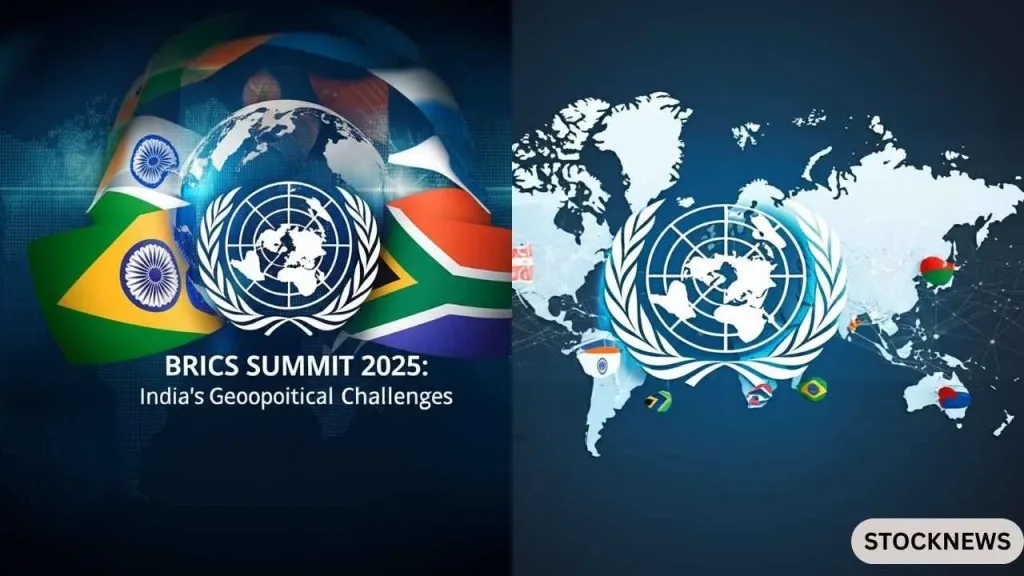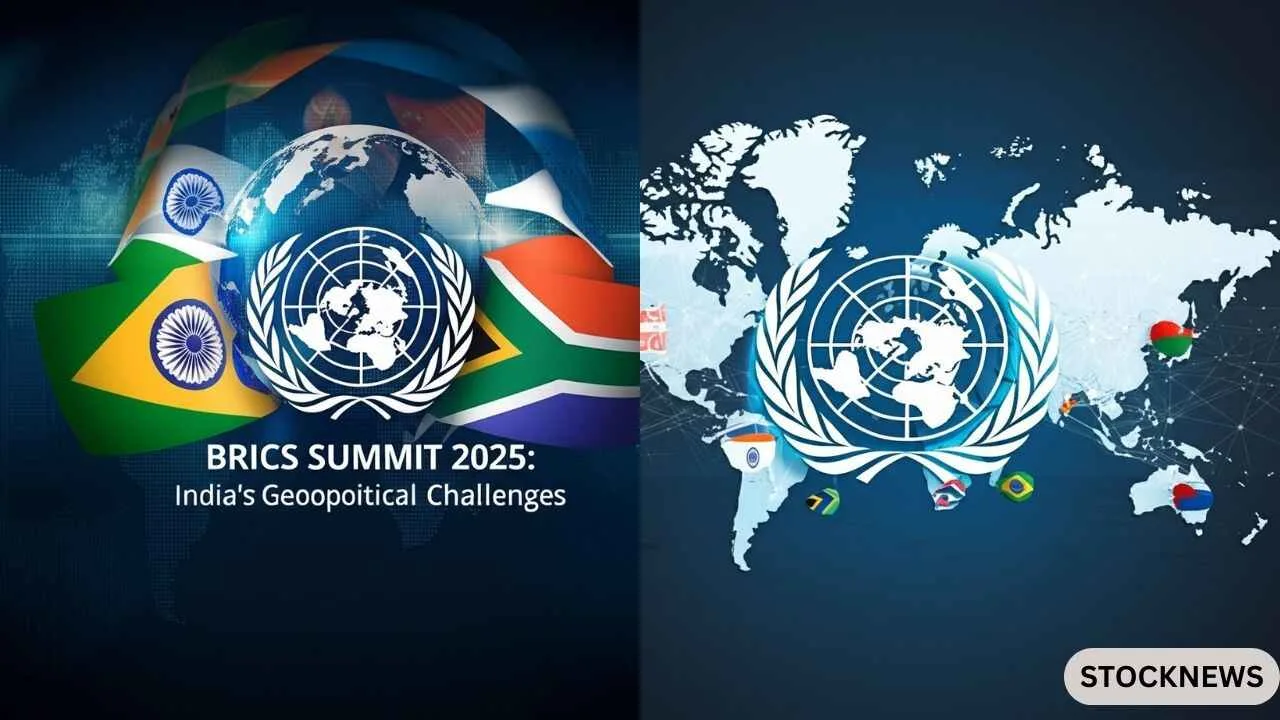In a move that could reshape the global geopolitical landscape, recent developments within the BRICS bloc—comprising Brazil, Russia, India, China, and South Africa—have raised serious questions about the group’s cohesion. As the BRICS summit 2025 approaches, internal divisions are beginning to surface, putting India’s aspirations for a permanent seat on the UN Security Council at risk. The growing diplomatic tensions among BRICS members signal that the group’s future, and its ability to influence global affairs, may be more uncertain than ever.
India has long championed the cause of UN Security Council reform, advocating for greater representation from emerging economies like itself. Alongside Brazil and South Africa, India has pushed for a permanent seat on the Security Council, seeking veto power to better reflect the geopolitical realities of the 21st century. However, the latest discord within BRICS over its expansion and internal priorities is threatening to undermine these efforts.
The Internal Rift: Egypt, Ethiopia, and South Africa’s UN Seat Dispute
The heart of the current tension lies in a bitter dispute over which African nation should claim a permanent seat on the UN Security Council. South Africa, already a member of BRICS, has long been seen as the natural candidate for this role, due to its economic power and political influence in Africa. However, Egypt and Ethiopia, two newer BRICS members, have expressed strong opposition to South Africa’s candidacy, arguing that the African Union has not yet made a definitive decision on which country should represent the continent at the UN.
This disagreement has escalated within the BRICS framework, with Egypt and Ethiopia blocking South Africa’s bid for permanent membership. Despite the historical support of the African Union for South Africa’s Security Council ambitions, Egypt and Ethiopia’s refusal to back the proposal has cast doubt on BRICS’ ability to present a unified front on this critical issue. The fallout from this internal conflict has now spilled over into broader geopolitical dynamics, leading to a lack of consensus in recent BRICS meetings.
Why BRICS Expansion Matters for India’s UN Security Council Bid
The debate over BRICS membership expansion is intricately tied to India’s broader diplomatic ambitions. Since its inception, BRICS has been a platform for emerging economies to challenge the dominance of Western powers in global governance. However, as the bloc looks to include new members in the coming years, the question of who gets a seat at the table has become more contentious. The expansion of BRICS could directly influence India’s standing in the global order and complicate its efforts to secure a permanent spot at the UN Security Council.
India has long been one of the staunchest proponents of reforming the UN Security Council, which remains dominated by the five permanent members—China, France, Russia, the UK, and the US. With China and Russia already holding permanent seats, India has argued that the Security Council should reflect the changing balance of power in the world, including representation from Africa, Latin America, and Asia.
But the prospect of BRICS expanding to include more countries with divergent interests poses a challenge to India’s diplomatic strategy. If new members with competing priorities enter the fold, particularly those that do not align with India’s UN ambitions, it could undermine the collective bargaining power that BRICS has built over the years. This is especially concerning for India, as BRICS has historically promised to support the candidacy of India, Brazil, and South Africa for a permanent seat.
How BRICS Countries Are Fighting Over UN Security Council Reforms
The lack of consensus among BRICS countries on key issues, including UN Security Council reform, highlights a deeper issue of competing national interests. During a recent BRICS foreign ministers’ and National Security Advisors’ meeting in Brazil, the failure to issue a joint statement underscored the growing divisions within the group. The failure to unite on a common stance on the UN reforms is especially troubling for India, which has consistently sought the group’s backing in its quest for a permanent seat.
In particular, China’s push for BRICS to adopt a more aggressive stance toward the United States and its trade policies has caused friction. China has advocated for the bloc to publicly support its efforts to challenge US tariffs and trade restrictions. However, with the US having recently delayed tariffs on most BRICS countries, many members have resisted aligning themselves with China’s confrontational approach, further deepening the divide.
Meanwhile, issues such as cross-border terrorism and de-dollarization have also become points of contention within BRICS. India, for instance, has consistently raised concerns about cross-border terrorism, particularly from Pakistan, while other members, like China, have been more reluctant to engage on this front. These differences over strategic priorities only add to the diplomatic challenges that India faces within the BRICS framework.
BRICS Tensions: What It Means for Global Geopolitics and India
As BRICS prepares for its next summit in 2025, the internal divisions within the group could have far-reaching consequences for global geopolitics. The growing influence of China and Russia within the bloc is already reshaping the group’s priorities, while the discord over UN Security Council reform and the expansion of BRICS threatens to destabilize its cohesion.
For India, this new reality presents significant challenges. The country’s strategic role in BRICS has long been seen as a cornerstone of its foreign policy. India has used the platform to position itself as a leader of the Global South, advocating for greater inclusivity in global governance. However, with rising tensions within the group, India may find it increasingly difficult to align the diverse interests of its BRICS partners with its own goals.
The geopolitical challenges for India in BRICS are compounded by the growing competition between African nations for a permanent seat on the UN Security Council. As the African Union continues to debate which country will represent the continent, India’s role in BRICS becomes even more critical in shaping the future of UN reforms.
How BRICS is Reshaping Geopolitics in 2025
The expansion of BRICS is not just about adding new members—it is about altering the balance of global power. With Russia and China at the helm, BRICS aims to challenge the Western-dominated institutions like the IMF and World Bank. But as more countries are invited to join, the ideological and political fractures within the bloc could weaken its ability to act as a cohesive force.
For India, this reshaping of BRICS could either bolster or hinder its diplomatic standing. While India’s strategic role in BRICS remains vital, the internal divisions within the group could weaken its position when it comes to pushing for reforms in the UN Security Council. As countries like Egypt and Ethiopia block South Africa’s bid, India must reconsider how it navigates the complex web of alliances within BRICS to secure its place in global governance.
Will BRICS Expansion Challenge India’s UN Security Council Ambitions?
The question of whether BRICS expansion will ultimately challenge India’s UN Security Council bid remains uncertain. As BRICS moves forward, India’s goal of securing a permanent seat on the Security Council will likely become more difficult if the group becomes divided or splintered along regional and ideological lines.
In the coming years, India will need to carefully manage its relationships within BRICS and navigate the growing tensions between African countries, China, and Russia. The stakes are high, as the future of the UN Security Council—and India’s role within it—hangs in the balance.

Conclusion
As BRICS continues to evolve, its internal tensions present both opportunities and challenges for India. While the expansion of BRICS and its diplomatic influence could benefit emerging economies, it could also complicate India’s longstanding efforts to secure a permanent seat on the UN Security Council. With Africa’s internal divisions over representation, China and Russia’s growing influence, and differing national interests within BRICS, the path forward for India remains uncertain.
The geopolitical challenges India faces within BRICS will require a delicate balancing act—ensuring that the group remains united while advancing its own national interests on the global stage. For India’s government, led by Prime Minister Narendra Modi, the coming years will be pivotal in shaping the country’s role in the global order.
